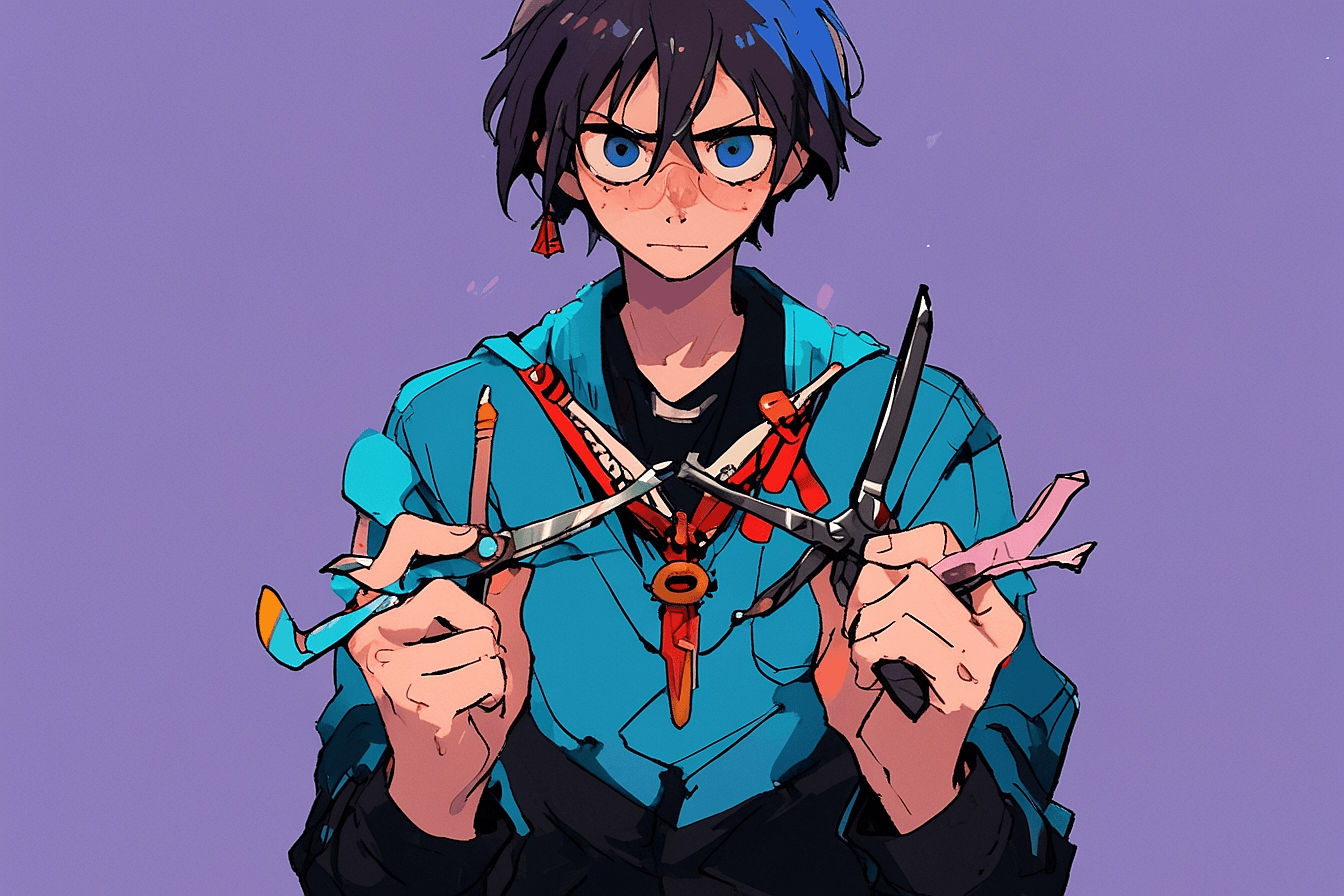Did you know that research shows three main types of inner critics can significantly impact our self-esteem and well-being? These critical voices within ourselves can be harsh, relentless, and often unnoticed. Understanding these different types, including critical inner voice, is crucial for personal growth and building resilience in the face of self-doubt. By identifying and addressing these inner critics, we can take steps towards cultivating a more positive self-image and achieving our full potential.

Key Takeaways
- Recognize Your Inner Critics: Understand the dynamics and characteristics of inner critics to identify and differentiate between the Perfectionist, Task Master, Conformist, and Controller critics.
- Silence Negative Voices: Implement strategies to silence inner critics by challenging negative thoughts, practicing self-compassion, setting realistic goals, and seeking support when needed.
- Embrace Imperfection: Overcome the influence of the critical inner Controller voice by accepting imperfections, learning from failures, and reframing mistakes as opportunities for growth.
- Cultivate Self-Awareness: Develop a positive relationship with your inner critics by acknowledging their presence, examining their origins, and reframing their messages constructively.
- Practice Self-Validation: Counteract the perfectionist tendencies of inner critics by celebrating small victories, acknowledging your efforts, and validating your worth beyond achievements.
- Create a Supportive Environment: Surround yourself with positive influences, engage in self-care activities, and cultivate self-compassion to nurture a mindset of self-acceptance and resilience.
Understanding Inner Critic Dynamics

Origins
Inner critics typically develop in childhood based on experiences, interactions, and feedback from caregivers or authority figures. These early influences shape inner critics and their patterns.
Impact on Self-Esteem
Inner critics often manifest as negative self-talk, creating doubt, fear, and insecurity within individuals. This constant critical inner voice can erode self-esteem, leading to feelings of inadequacy and unworthiness.
Role in Shaping Behavior
Inner critics play a significant role in shaping behavior by influencing decision-making processes and actions. They can instill a sense of perfectionism or create barriers that hinder personal growth and success by influencing one’s inner voice.
Characteristics of Inner Critics
Common Traits
Inner critics often exhibit perfectionism, self-doubt, and harsh self-judgment. They constantly criticize one’s actions, creating a sense of inadequacy.
They tend to magnify mistakes and overlook achievements, leading to a negative self-image. Critical inner voices can be relentless, feeding on insecurities and fears.
Manifestation in Thoughts and Actions
These inner critics manifest through intrusive thoughts that highlight shortcomings and failures. They may lead to procrastination or avoidance behavior due to fear of criticism.
Individuals with strong inner critic tendencies may struggle with decision-making, always second-guessing themselves. This can result in feelings of anxiety and low self-esteem.
Emotional Impact
The presence of inner critics can significantly impact emotional well-being. Constant self-criticism can lead to feelings of worthlessness and hopelessness.
Individuals may experience heightened levels of stress and anxiety due to the persistent negative dialogue within their minds. This can affect relationships and overall quality of life.
Identifying Your Inner Critics

Recognizing Voices
When exploring your inner voice, consider the different tones and messages. Each critic may sound distinct.
Critics might be harsh, constantly criticizing your actions or decisions. Others could be more subtle, planting seeds of doubt.
Analyzing Triggers
Triggers that activate inner critics vary for each person. Reflect on situations where you feel self-doubt or judgment.
For example, criticism from others might trigger your inner critic to amplify negative thoughts.
Personal Reflection
Reflect on personal experiences to identify your inner critics. Think about moments when you felt inadequate or insecure.
Consider how these critical voices influence your thoughts and behaviors in different situations.
The Perfectionist Critic Explored
Traits
The perfectionist critic constantly seeks flawlessness in everything you do, never satisfied with your efforts. It tends to hyper-focus on mistakes and imperfections.
This inner critic is relentless, always pushing for unattainable levels of perfection. It magnifies even the smallest errors, making you feel inadequate.
Unrealistic Standards
The perfectionist critic sets impossibly high standards, leading to a cycle of self-doubt and dissatisfaction. It creates an environment where nothing is ever good enough.
It often stems from past experiences or societal pressures to excel in every aspect of life. This can result in chronic stress and anxiety.
Effects on Mental Well-being
The perfectionist critic can severely impact mental well-being by fostering feelings of inadequacy and failure. It breeds a constant fear of making mistakes.
This inner critic can lead to burnout, anxiety disorders, and depression if left unchecked. It hinders personal growth and self-compassion.
Navigating the Task Master Critic
Characteristics
The taskmaster inner critic is relentless, setting high standards and pushing for perfection constantly. It thrives on control and order.
This type of inner critic tends to be detail-oriented, focusing on every small mistake or imperfection. It can lead to feelings of inadequacy and self-doubt.
Management Strategies
To manage the demands of the taskmaster critic, it’s essential to practice self-compassion and acknowledge your efforts. Setting realistic goals helps in combating perfectionism.
Creating a balance between productivity and self-care is crucial when dealing with the taskmaster critic. Taking breaks and practicing mindfulness can help reduce its impact.
Impact on Productivity
The taskmaster critic can drive individuals to excel, but at a cost. Constant criticism can lead to burnout, anxiety, and decreased motivation.
Striving for perfection under the influence of the taskmaster critic may result in procrastination or avoidance due to fear of failure. Recognizing this pattern is key to breaking free from its grip.
The Influence of the Conformist Critic
Societal Impact
Society and its expectations have a significant influence on the conformist inner critic. It molds individuals to fit into predefined roles.
Individual norms dictate how the conformist critic views a person’s actions, often leading to self-criticism. This can create a cycle of negative thoughts.
Behavior Shaping
The conformist critic shapes behavior based on societal standards, pushing individuals to adhere to cultural norms and values.
It critiques actions that deviate from what is considered acceptable by society, fostering self-doubt and fear of judgment.
Challenging Beliefs
Challenging the beliefs of the conformist critic involves questioning societal constructs and reflecting on personal values and authenticity.
Overcoming the Controller Critic

Understanding
The inner controller critic thrives on setting high standards, often leading to feelings of failure. It constantly demands perfection and control.
This type of critic tends to be harsh, critical, and unforgiving when goals are unmet. It can create a sense of inadequacy and self-doubt.
Techniques
Individuals must first recognize its presence to assert independence from the controller critic. By acknowledging its influence, one can begin to challenge its authority.
Practicing self-compassion and self-care can help combat the negative effects of the controller critic. Setting realistic goals and celebrating small victories are essential to overcoming its grip.
Relationship
Control issues often stem from deep-rooted fears and insecurities manifesting as the controller critic. Addressing these underlying issues through therapy or self-reflection can lead to significant progress in silencing this inner voice.
Strategies for Silencing Critics
Positive Self-Talk
Implement positive self-talk as a powerful method to counteract critical thoughts. When your inner critic starts whispering negativity, respond with affirmations. Remind yourself of your strengths and accomplishments.
Self-affirmations can help reframe negative beliefs. Tell yourself, “I am capable,” “I am worthy,” or “I deserve success.” By replacing self-criticism with positive statements, you gradually weaken the influence of your inner critic.
Practice Self-Compassion
Embrace self-compassion as a tool to quieten inner critics. Treat yourself with kindness and understanding, just as you comfort a friend facing challenges. Acknowledge your imperfections without judgment.
Self-compassion involves recognizing that everyone makes mistakes and experiences setbacks. Instead of harsh self-criticism, offer yourself empathy and support. This approach fosters resilience and reduces the impact of negative self-talk.
Living Positively with Inner Critics
Embrace Self-Awareness
Embracing self-awareness allows individuals to acknowledge and understand their inner critics. By recognizing the presence of these critical voices, one can begin to separate them from their true self. This separation enables individuals to respond to their inner critics with compassion rather than harsh judgment. Through self-awareness, one can identify negative self-talk patterns and work towards transforming them into more positive affirmations.
Cultivate Growth Mindset
Cultivating a growth mindset is essential in navigating challenges posed by inner critics. A growth mindset involves believing in the ability to learn and improve, even in the face of criticism. By viewing setbacks as opportunities for growth and development, individuals can shift their perspective on self-criticism. This mindset encourages resilience and a willingness to embrace feedback for personal advancement.
Utilize Mindfulness Techniques
Utilizing mindfulness techniques offers a powerful tool for maintaining a balanced perspective amidst inner critic chatter. Mindfulness involves being present in the moment without judgment, allowing individuals to objectively observe their thoughts and emotions. By practicing mindfulness, individuals can create distance from their inner critics’ negative narratives and choose how to respond consciously. Techniques such as deep breathing, body scans, and meditation can help cultivate a sense of calm and clarity in the face of self-criticism.







Leave a Reply